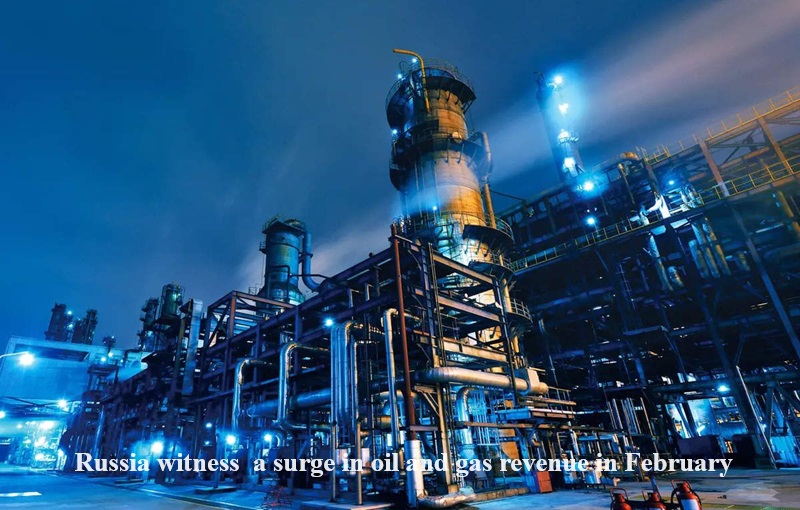
Russia experienced a notable increase in oil and gas revenue in February, surpassing $10 billion, marking a rise of more than 80 per cent compared to the previous year.
As per a Bloomberg report, this surge in revenue was attributed to the substantial increase in prices for Russian crude, notwithstanding enduring Western sanctions aimed at the nation’s energy sector.
The average price of Urals, Russia’s primary export blend, stood at $65 per barrel, used to compute oil taxes, a significant increase from less than $50 a year ago.
Taxes on crude and petroleum products, comprising 84 per cent of total hydrocarbon revenues, more than doubled, as calculated by Bloomberg based on official data.
Russia’s oil and gas sectors are pivotal revenue sources for the nation, especially amidst escalating military expenditures associated with Moscow’s involvement in Ukraine.
Despite economic pressures and sanctions, Russia’s ability to enhance its energy revenues highlights the resilience of its energy industry amidst geopolitical adversities.
The effectiveness of Western sanctions aimed at curbing Russia’s oil revenues has varied.
While the European Union and the Group of Seven nations imposed restrictions on crude imports and imposed price caps on Russian oil cargoes, Moscow has employed alternative strategies to mitigate the impact, such as utilising a clandestine fleet of tankers and collaborating with non-Western buyers and intermediaries.
In response to sanctions and fluctuating oil prices, Russia has implemented measures to safeguard its budgetary cash flows, including the activation of a “price floor mechanism.”
This mechanism ensures that producers pay taxes based on an artificial discount for Urals crude, shielding budget revenues from potential price fluctuations.
Moreover, Russia’s adjustments in taxation policies, including reductions in export duties on crude and oil products alongside increases in the oil-extraction tax, have contributed to reinforcing revenue from the oil-production tax.
These fiscal measures have enabled Russia to uphold stability in its energy revenue streams amidst evolving market conditions.
Furthermore, Russia allocated subsidies to its oil processors in February for domestic sales of diesel and gasoline, showcasing a multifaceted approach to stabilise the energy sector and ensure market stability.

Post Your Comments